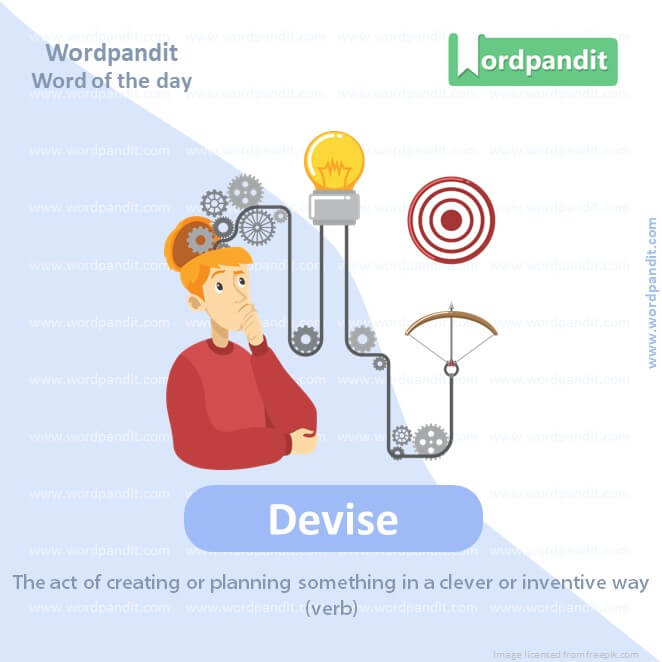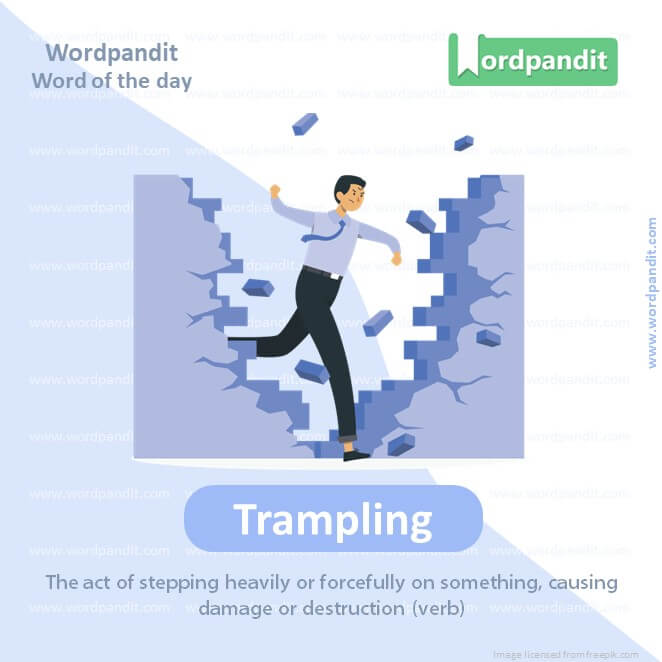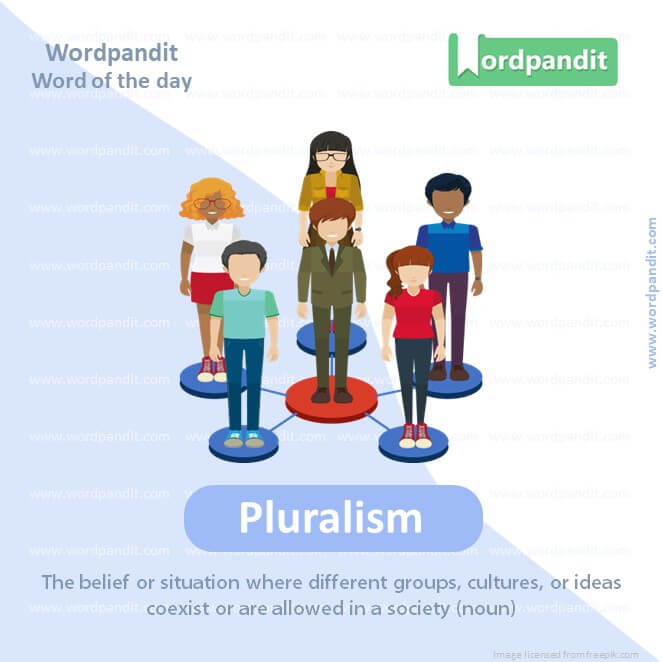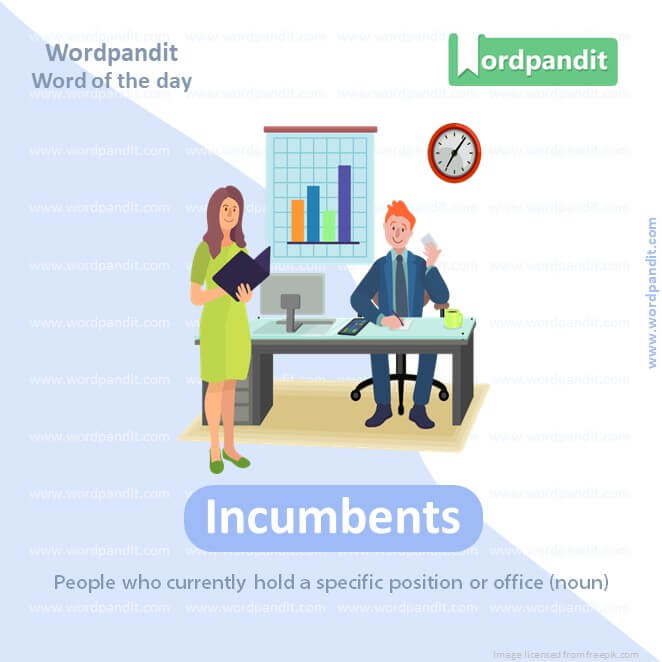Daily Vocabulary Words: List of Daily Used Words
Hi there. Welcome to this special section @ Wordpandit.
Our endeavour here is straightforward: highlighting important daily vocabulary words, you would encounter in The Hindu. This is your repository of commonly used words; essentially, we are posting a list of daily used words. Hence, this has significant practical application as it teaches you words that are commonly used in a leading publication such as The Hindu.
Visit the website daily to learn words from The Hindu.

WORD-1: Devise
CONTEXT: “So far, the PPP has not engaged officially with the PML-N, PTI or any other party. Once the results are finalised, then the Central Executive Committee of the party, which nominated me as the candidate, will sit again and devise the course of action,” he said.
SOURCE: The Hindu
EXPLANATORY PARAGRAPH: Imagine you have a box of legos, and you want to build something new that no one else has made before, like a spaceship or a castle. To do that, you need to come up with a plan or idea of how to put those legos together. “Devise” is just like that. It means thinking up a plan or idea for something really cool or useful.
MEANING: The act of creating or planning something in a clever or inventive way (verb).
PRONUNCIATION: dɪˈvaɪz
SYNONYMS: Invent, Create, Design, Plan, Concoct
USAGE EXAMPLES:
1. She devised a new way to organize her toys.
2. We need to devise a plan for the school project.
3. The game was devised by a group of creative kids.
4. They devised a clever solution to the puzzle.

WORD-2: Trampling
CONTEXT: The PTI has rejected the “shameful” attempts at creating PDM 2.0 in the country by trampling on the intentions of the people, a statement released by the party said.
SOURCE: The Hindu
EXPLANATORY PARAGRAPH: Imagine you and your friends are running and playing in a garden, stepping on the flowers and grass as you move around quickly. When you “trample,” it means you are walking or stepping on something so hard that it might get damaged or squished. It’s like accidentally stepping on your toy and breaking it because you weren’t looking where you were going.
MEANING: The act of stepping heavily or forcefully on something, causing damage or destruction (verb).
PRONUNCIATION: ˈtræmpəl
SYNONYMS: Stomp, Stamp, Crush, Squash, Flatten
USAGE EXAMPLES:
1. The excited crowd trampled the grass at the concert.
2. Please don’t trample on the flowers in the garden.
3. The horses trampled the ground as they raced.
4. The sign said, “Do not trample the newly planted seeds.”

WORD-3: Facilitators
CONTEXT: “The chief election commissioner (CEC) and the Election Commission of Pakistan are the main facilitators in the open robbery of democracy,” it added.
SOURCE: The Hindu
EXPLANATORY PARAGRAPH: Imagine if you’re trying to build a tall tower of blocks, but it keeps falling down. Then, someone older comes and helps you figure out how to do it better without doing it for you. That person is like a “facilitator.” They help and guide people to do things more easily or learn something new, without taking over and doing it themselves.
MEANING: People who help a group to work together better by making things easier and guiding the process without taking control (noun).
PRONUNCIATION: fəˈsɪlɪteɪtərz
SYNONYMS: Enablers, Coordinators, Mediators, Guides, Supporters
USAGE EXAMPLES:
1. Our teacher acts as a facilitator in our group projects.
2. Facilitators helped us understand how to solve the problem.
3. The workshop’s facilitator made learning fun.
4. She is known as a skilled facilitator in meetings.

WORD-4: Pluralism
CONTEXT: On February 10, a statement attributed to the army chief Gen Munir said, “Pakistan’s diverse polity and pluralism will be well-represented by a unified government of all democratic forces imbibed with national purpose.”
SOURCE: The Hindu
EXPLANATORY PARAGRAPH: Imagine a big box of crayons with lots of different colors. Some crayons are red, some are blue, and others are green, yellow, or purple. “Pluralism” is like this box of crayons because it means having many different types or ideas all together in one place and thinking that this is good because it makes things more interesting.
MEANING: The belief or situation where different groups, cultures, or ideas coexist or are allowed in a society (noun).
PRONUNCIATION: ˈplʊərəlɪzəm
SYNONYMS: Diversity, Multiplicity, Variety, Coexistence, Inclusiveness
USAGE EXAMPLES:
1. Our school teaches us about pluralism and respecting all cultures.
2. Pluralism in the workplace encourages different ideas.
3. The festival celebrated pluralism with music and food from around the world.
4. A healthy democracy thrives on pluralism.
WORD-5: Considerable
CONTEXT: The powerful Pakistan Army, which has ruled coup-prone Pakistan for more than half of its 75-plus years of existence, has wielded considerable power in the country’s politics.
SOURCE: The Hindu
EXPLANATORY PARAGRAPH: Imagine you have a jar of cookies. If you have only a few cookies, you might still be hungry after eating them. But if you have a “considerable” amount of cookies, that means you have a lot of them—enough to share with your friends and still have plenty left over. It’s like having so much of something that it’s more than enough.
MEANING: Large in size, amount, or extent (adjective).
PRONUNCIATION: kənˈsɪdərəbl
SYNONYMS: Significant, Substantial, Large, Ample, Considerable
USAGE EXAMPLES:
1. She spent a considerable amount of time on her homework.
2. The project received considerable support from the community.
3. They traveled a considerable distance to see their friends.
4. The donation made a considerable difference to the charity.

WORD-6: Incumbent
CONTEXT: The Army chief noted that the people of Pakistan reposed their combined trust in the Constitution of Pakistan, and it was now “incumbent upon all political parties to reciprocate the same with political maturity and unity.”
SOURCE: The Hindu
EXPLANATORY PARAGRAPH: Imagine you have a favorite seat in your classroom where you sit every day. You’re the “incumbent” of that seat, meaning it’s your special spot right now, and you’re expected to sit there because it’s like your unofficial assigned place. In a bigger way, “incumbent” can also mean someone who has a certain job or position at the moment.
MEANING: People who currently hold a specific position or office (noun).
PRONUNCIATION: ɪnˈkʌmbənt
SYNONYMS: (Adjective) Current, Existing, Present; (Noun) Officeholder, Holder, Beare
USAGE EXAMPLES:
1. The incumbent mayor is running for re-election.
2. It is incumbent upon us to help those in need.
3. She defeated the incumbent in a surprising election upset.
4. As the incumbent president, he introduced many reforms.
WORD-7: Steeped
CONTEXT: In an editorial on the election outcome, the Dawn newspaper commented that Pakistan once again finds itself in a familiar place — one that is steeped in political uncertainty.
SOURCE: The Hindu
EXPLANATORY PARAGRAPH: Imagine putting a tea bag into hot water and waiting for a bit. The water starts to change color and taste like tea. That’s because the tea bag is “steeped” in the water, meaning it’s soaking all the tea flavor into the water. When something is steeped, it’s filled or soaked with a lot of something, just like the water is filled with tea flavor.
MEANING: Soaked, drenched, or saturated with a particular quality or influence (verb).
PRONUNCIATION: stiːpt
SYNONYMS: Soaked, Infused, Saturated, Imbued, Marinated
USAGE EXAMPLES:
1. The room was steeped in history.
2. She was steeped in the traditions of her country.
3. The novel is steeped in mystery and intrigue.
4. His writings are steeped in symbolism.
WORD-8: Cobbles
CONTEXT: “As the wheeling and dealing proceeds, two things are clear: one, that however the PML-N cobbles this coalition together, its ‘victory’ will be more bitter than sweet,” it said in an editorial.
SOURCE: The Hindu
EXPLANATORY PARAGRAPH: Imagine walking on a path made of lots of small, round stones instead of smooth pavement. These stones are called “cobbles,” and they’re used to make roads or paths look pretty and old-fashioned. Walking on cobbles can be bumpy because each stone is a different size and shape, making the ground uneven.
MEANING: Small, rounded stones used for paving streets (noun).
PRONUNCIATION: ˈkɒblz
SYNONYMS: Stones, Pebbles, Setts, Pavestones, Cobblestones
USAGE EXAMPLES:
1. The old town has streets paved with cobbles.
2. They walked hand in hand across the cobbles.
3. The cobbles in the courtyard added to its charm.
4. Her heels clicked on the cobbles as she walked.
WORD-9: Harboured
CONTEXT: Without the outcome it had hoped for, it is now left to perform that uneasy dance of give and take for political survival. This is certainly not the fantasy Mr. Sharif harboured when he returned to Pakistan after four years abroad, the editorial added.
SOURCE: The Hindu
EXPLANATORY PARAGRAPH: Imagine you have a secret hiding place where you keep your favorite toys or snacks away from everyone else. That’s a bit like “harbouring” something. It means to keep feelings, thoughts, or even people safe and protected, sometimes in a way that’s secret or not allowed.
MEANING: To keep (thoughts, feelings, etc.) in one’s mind, often secretly (verb).
PRONUNCIATION: ˈhɑːbərd
SYNONYMS: Shelter, Conceal, Hide, Nurture, Hold
USAGE EXAMPLES:
1. She harboured a hope that one day she’d be a pilot.
2. He harboured feelings of jealousy towards his friend.
3. The small town harboured a fugitive secretly.
4. They harboured resentment over the unfair treatment.
WORD-10: Uneasy
CONTEXT: Without the outcome it had hoped for, it is now left to perform that uneasy dance of give and take for political survival. This is certainly not the fantasy Mr. Sharif harboured when he returned to Pakistan after four years abroad, the editorial added.
SOURCE: The Hindu
EXPLANATORY PARAGRAPH: Imagine you’re about to give a presentation in front of your class, and you feel a little nervous and worried. That feeling is called “uneasy.” It’s when you’re not feeling completely comfortable or calm because you’re unsure about something or slightly scared.
MEANING: Feeling worried or uncomfortable; not at ease (adjective).
PRONUNCIATION: ʌnˈiːzi
SYNONYMS: Anxious, Nervous, Worried, Restless, Apprehensive
USAGE EXAMPLES:
1. She felt uneasy before the big test.
2. The strange noise made him feel uneasy.
3. They had an uneasy feeling about the deserted house.
4. The conversation made her uneasy.
vocabulary journal words
In the realm of language learning, one unparalleled method has been consistently proven to provide tremendous value – engaging with vocabulary journal words. This practice is a brilliant tool that provides a platform for the gradual introduction of new words, phrases, and their nuances.
But how exactly should we approach learning vocabulary journal words?
Originally, vocabulary journal words are a collection of new words you encounter that are challenging and unfamiliar. On stumbling upon such words, take the first step by writing them down in your journal. But simply recording them isn’t enough. The real strength of vocabulary journal words lies in understanding and using them in context. Draft sentences using these words, as this practical usage not only enhances retention but also familiarizes you with their applicability.
Expanding your vision beyond memorization, indulge in understanding the background of these vocabulary journal words. Dive into the etymology of the words, learn their origins, and uncover the different meanings they’ve held over time. This nugget of information often aids in deeper understanding and long-term retention of words.
Your engagement with vocabulary journal words should not be reserved for solitary learning. Discuss these words in conversation with friends, family, or language mentors. This encourages active usage and, silently but surely, integrates them into your everyday language.
Another enchanting side to vocabulary journal words is the potential for creativity. Create small stories or visuals connected to the words, leading your brain to create multiple neural connections to the meaning of the word – a powerful strategy for enhancing retention.
In essence, vocabulary journal words offer a multifaceted, immersive learning process that goes beyond just enhancing your word-list. They open doors to the dynamic world of language and its contexts, training your mind to appreciate, understand, and effectively communicate with an enriched vocabulary. Consider vocabulary journal words not as a task but as your secret allies on your beautiful journey through language learning.













